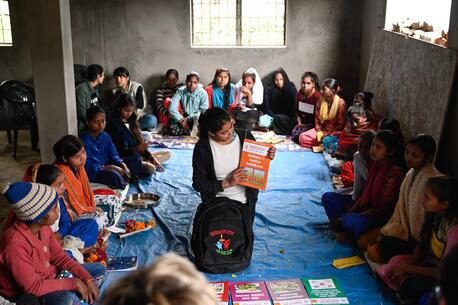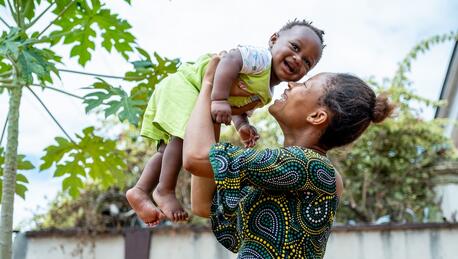Ensuring the rights of children with disabilities
Today marks the 20th anniversary of the Americans with Disabilities Act (ADA), a civil rights law that prohibits discrimination based on disability. For the past two decades, the landmark measure has been responsible for ensuring that Americans with disabilities receive fair opportunities for employment and improved accessibility to buildings, transportation, and community events.
It's an occasion to celebrate the progress made since President George H.W. Bush signed the ADA into law-- but also a time to reflect on the status of those with disabilities throughout the world.
Unlike children with disabilities in the U.S., many living in other countries grow up without the protections of the ADA and face extreme hardship and exclusion. Of the estimated 200 million children in the world with disabilities, around 90 percent of those in developing countries don't even attend school. Millions of children wake up each day to experience not only substandard living conditions, but also severe discrimination.
UNICEF provides critical support for disabled children throughout the world, including in places like Vietnam, where a new daycare center for children with disabilities recently opened with the generous support of the Lanza Family Foundation and where we are currently working with the Ford Foundation on other programs to serve children with disabilities.
In Vietnam, 1.2 million children under the age of 16 are disabled (including some who have been exposed to dioxins left over from the chemical known as Agent Orange, which was used during the Vietnam war). In many cases, they and their families receive little social support and have to cope with an astounding lack of vital health and educational services.
Countries in Central and Eastern Europe and the Commonwealth of Independent States have seen a significant increase in their populations of disabled children over the past 20 years, according to a UNICEF report -- yet many of these children's rights go ignored due to an onerous stigma. In Moldova for instance, thousands of children do not have access to schools that are equipped to address their special needs.
It's not just a matter of poor educational services and neglect. Children who are subjected to discrimination because of their disabilities not only lose self-esteem, but also become more vulnerable to poverty, violence, abuse and exploitation. That's why UNICEF is committed to providing opportunities for disabled children throughout the world to prevent them from going unnoticed and unprotected. In Moldova, UNICEF is supporting a project called "Education for All--Fast Track Initiative", which has already provided 569 kindergartens in the country with new equipment, toys and training for teachers to better aid children with disabilities.
Despite these achievements, much more needs to be done to include and support the disabled community--in developing countries and here in the U.S. In Vietnam and Moldova, doing so will require funding for programs and a strong commitment to long-term goals. The ADA's anniversary presents an opportunity not only to celebrate the progress made at home, but to advocate for the enforcement and realization of children's rights everywhere.

